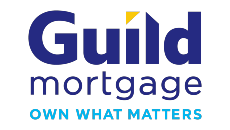What are FHA Mortgages and Why Are They A Favorite in Michigan?
In Michigan, low and no-downpayment mortgages are popular with first-time buyers and repeat buyers alike. One of the most popular low-dowpayment mortgage programs available is the FHA loan via the Federal Housing Administration. Nearly 1 in 5 U.S. home buyers use a FHA loan to finance a new home purchase.
FHA mortgage loans are very competitive loan programs. FHA mortgages allow the homebuyer to put down as low as a 3.5% down payment AND have less than perfect credit. Because the Federal Housing Authority insures your mortgage, Guild Mortgage Inlanta may be more willing to give you loan terms that make it easier for you to qualify.
In addition to less strict underwriting standards, FHA mortgage rates can be lower than comparable conventional rates, and FHA loans can be assumed by a home’s subsequent buyer. The FHA loan’s combination of low rates, low downpayment, and flexible lending guidelines have made it one of most common loan choices for home buyers today.
Other benefits of the FHA mortgage loan program may include:
- lower closing costs
- down payment can be gifted to the homebuyer eg. from family, employer etc.
- available on 1-4 unit properties
- cash reserves not required
- closing costs can be paid by seller
- flexible qualifying debt to income ratios
- streamline refinance available
FHA Mortgage loans can be fixed-rate or adjustable rate mortgages, but the majority are fixed-rate mortgages.
How is an FHA Mortgage Structured Compared to Other Mortgage Loans?
FHA Mortgage loans require a mortgage insurance premium to be collected at closing (upfront MI) and an annual premium is collected in monthly installments. The FHA mortgage insurance premium is not the same as your homeowner’s insurance and is required of all borrowers. A typical monthly mortgage payment on a FHA mortgage loan includes principal and interest, taxes, monthly insurance premium (MIP), homeowners insurance.
FHA Mortgage Insurance Premiums – A 2-Sided Coin
It may seem odd to call FHA mortgage insurance a benefit since it doesn’t come for free, however, FHA MIP is what makes the FHA program possible. Without the MIP, FHA-approved lenders would have little reason to make FHA-insured loans. And because of the MIP, the actual mortgage rate may be lower because FHA is insuring your loan against default. MIP is how the FHA collects “dues” to keep its program available to U.S homeowners at no cost to taxpayers. On the other side of the coin, the MIP adds cost to your loan.
So despite, or because of MIP, FHA loans can be more expensive, or less expensive, than other loan types. The long-term cost of an FHA loan depends on your loan size, your downpayment, and your location.
MIP is paid in two parts. The first part is paid at closing and is known as Upfront MIP. Upfront MIP is automatically added to your loan balance by the FHA so no payment is required at settlement. Upfront MIP is equal to 1.75% of your loan size.
By contrast, annual mortgage insurance premiums are paid monthly, in twelve equal installments annually.
The good news is that, as a homeowner or home buyer, your FHA MIP rates have dropped. Today’s FHA MIP costs are now as much as 50 basis points (0.50%) lower per year than they were in recent years.
Also, you have ways to reduce what you’ll owe in FHA MIP annually including using a 15-year mortgage term for your loan; or, making a downpayment of at least 5 percent.
Or, as many homeowners are doing in today’s market, you can refinance out of FHA MIP.
How To Qualify For FHA Loan
To qualify for FHA loan, a mortgage borrower must meet the minimum standards of the Federal Housing Administration’s mortgage program, which include showing a minimum credit score of 500, though investors require a minimum of 620. Borrowers must have verifiable income and employment, as well as prove their status as a legal resident of the United States. The program is available to first-time home buyers, repeat home buyers, and can be used to refinance an existing mortgage of any type. The FHA loan does not enforce a maximum income limitation.
Calculating FHA Mortgage Insurance Premiums:
There are actually two types of Mortgage Insurance Premiums associated with FHA loans:
1. Up Front Mortgage Insurance Premium (UFMIP) – financed into the total loan amount at the initial time of funding
2. Monthly Mortgage Insurance Premium – paid monthly along with Principal, Interest, Taxes and Insurance
Conventional loans that are higher than 80% Loan-to-Value also require mortgage insurance, but at a relatively higher rate than FHA Mortgage Insurance Premiums.
Mortgage Insurance is a very important part of every FHA loan since a loan that only requires a 3.5% down payment is generally viewed by lenders as a risky proposition.
Up Front Mortgage Insurance Premium (UFMIP)
UFMIP varies based on the term of the loan and Loan-to-Value.
For most FHA loans, the UFMIP is equal to 2.25% of the Base FHA Loan amount.
For Example:
>> If John purchases a home for $100,000 with 3.5% down, his base FHA loan amount would be $96,500
>> The UFMIP of 2.25% is multiplied by $96,500, equaling $2,171
>> This amount is added to the base loan, for a total FHA loan of $98,671

